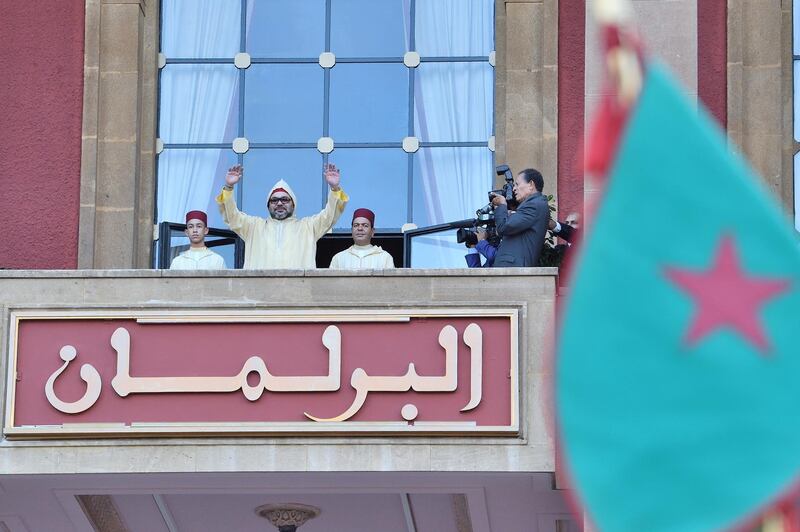Morocco has urged Algeria to respond to an offer for talks on mending diplomatic relations after King Mohammed VI’s olive branch was met with silence, but analysts say the entire initiative may be more about image than substance.
The Moroccan Foreign Ministry said it regrets that Algeria hasn’t responded to the king’s overture, adding that Rabat “remains open and optimistic” on the future of relations between the two states.
“Morocco can only regret that this initiative did not [see] the desired response, especially that it has always been requested by Algeria itself,” a Foreign Ministry statement said.
Animosity between the two states is longstanding, with ill will over the shared borders established by Algeria’s French colonial government in 1957 and on the future of the Western Sahara region, where Algiers backs the Polisario Front, a Sahrawi liberation movement, against Rabat.
While the foreign ministries held a series of meetings after the King’s November 6 call for dialogue, giving hope that they were preparing to resolve their long-standing differences, Algiers has been tight-lipped about the King’s offer. Their only public response was an anonymous source quoted by the official TSA news agency saying the proposal was “questionable” without detailing what the Algerian side had taken issue with.
______________
Read more:
Morocco cuts ties with Iran over Hezbollah arms transfer to Polisario Front
Iran allegations could heat up Western Sahara conflict
Opinion: Hezbollah activity in Morocco shows how far Tehran's meddling has spread
______________
While analysts say Rabat and Algiers do still want some type of rapprochement, the latest offer may be an attempt by Morocco to outmanoeuvre the UN and present the image of being a compromiser.
"I think there is some genuine desire on both sides to repair and normalise the relationship, which bears an economic and political cost to both sides", said Sarah Yerkes, a fellow at Carnegie's Middle East Programme, told The National.
But she said there’s little hope for a swift end to this protected standoff and that “by inviting Algeria to engage in talks, King Mohammed appears to be the good guy – now he can poke and prod Algeria for failing to answer his ‘generous’ offer”.
She also said that the issue of Western Sahara is a major sticking point.
Planned UN-sponsored talks in December that include Morocco and Algeria as well as Mauritania and the Polisario Front have alienated many in Rabat. The conflict is a major barrier to mending fences with Algeria.
“I cannot imagine Algeria abandoning the Polisario at this point,” Ms Yerkes said. “But should Algeria and Morocco actually enter into negotiations, Algeria would likely reiterate that it is not a party to the Western Sahara conflict and would not permit Western Sahara to be a part of an agreement between Morocco and Algeria.”
Should Morocco agree to this, Ms Yerkes speculated, the issue of Western Sahara would effectively be removed from negotiations, possibly allowing some sort of settlement.
Despite years of mutual hostility, there is precedence for good relations. The formation of the Maghreb Arab Union in 1989 saw visa-free travel and flourishing trade between the neighbours. But a bombing in Marrakesh in 1994 and fears that Algeria’s then growing civil war would make its way westward, saw walls go back up and the borders close.
On a visit to the Moroccan capital earlier this week, US Under-Secretary of State for Political Affairs, David Hale, welcomed the king’s initiative. He told the Moroccan parliament that it would benefit both the peoples of the region and their future.
“The closure of the border between the two countries hurts all of the Maghreb and the reinvigoration of the Arab Maghreb Union, which Algeria has recently proposed, is probably attractive to both countries,” said Ms Yerkes.





